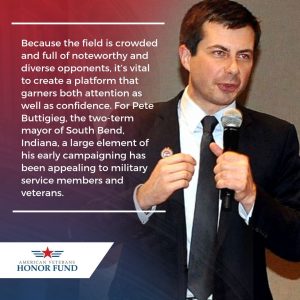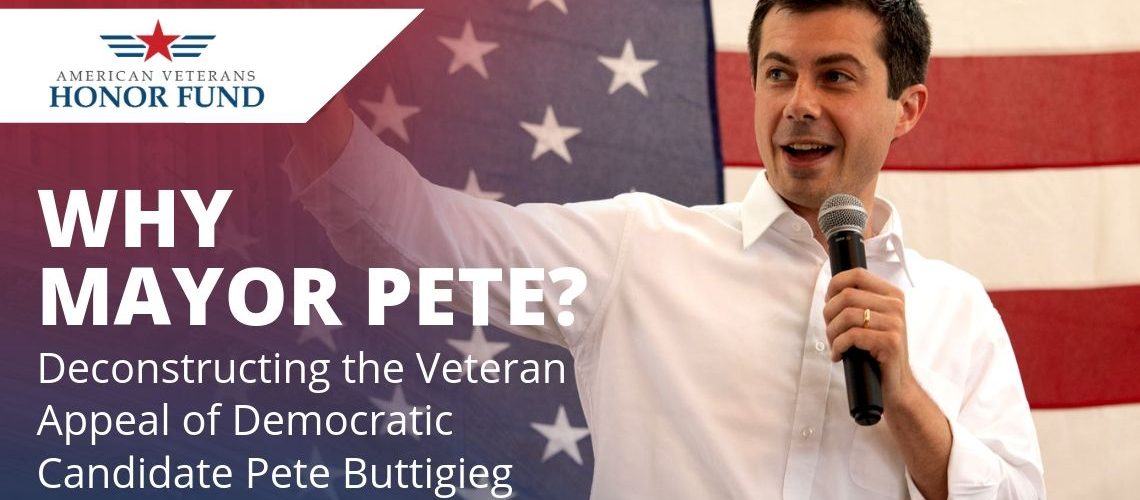As the field jockeying for position to win what is lining up to be one of the most dramatic Democratic nominations in recent memory, some candidates have already made a name for themselves. Because the field is crowded and full of noteworthy and diverse opponents, it’s vital to create a platform that garners both attention as well as confidence.
For Pete Buttigieg, the two-term mayor of South Bend, Indiana, a large element of his early campaigning has been appealing to military servicemembers and veterans. This is a strategic move, as Buttigieg, 37, is one of just three Democratic candidates in the running who have military experience on their resumes. It’s a commonly known fact that the population of veterans in political office has dwindled since the Vietnam War era boom of veteran involvement. A strong candidate with military experience may find a foothold among veteran voters.
Buttigieg comes from a family full of military veterans, with an uncle who flew for the Army and a grandfather who served as an Army officer. However, his early foray into political activism actually stemmed from an anti-war angle. It wasn’t until he himself had a few eye-opening experiences that he saw for himself how the military and its servicemembers could best be utilized to benefit the country.

He credits his time volunteering on Barack Obama’s 2012 campaign with the inspiration to step up and join.
“I might have dragged my feet on it forever if I hadn’t had that experience in Iowa and just realizing that some communities were almost emptying out their youth in the military and some were barely serving at all,” Buttigieg reflected in an interview with CNN. “And I wanted to be on the right side of that gap.”
Indeed, the military has struggled to appeal to younger individuals outside of rural southern and midwestern America. For older members of the population who remember well the eager ranks of young adults joining in droves, this can be disheartening. Because of this, having a candidate with military experience as well as an understanding how the proper use of military force may have a positive effect on widening the appeal of a service that relies on voluntary sign-ups.
Pete Buttigieg served from 2009 to 2017 as a member of the U.S. Navy Reserve, eventually earning the rank of lieutenant and undergoing a seven month deployment to Afghanistan. A Naval Intelligence Officer during his tenure, Buttigieg was a part of a unit that sought out and disrupted terrorist finance networks.
What about Mayor Pete (as he is affectionately known by supporters) and his platform on foreign policy? Again, veterans often find strong footing with veteran voters and supporters through the amplification of a strong foreign policy platform.
For Buttigieg, the use of military force is something to employ without discretion. He’s been a vocal supporter of the withdrawal of troops from Afghanistan, but also sees the benefit of leaving a presence in Syria. Balance, he says, is what the country needs more of.
“We should be prepared to use it to defend the homeland, to prevent attacks on American soil and American interests and people,” he said in an interview with Military Times. At the same time, you can’t be casual or careless about what is going on.”
With his viewpoint in addition to the perspective gleaned from time spent serving overseas, Buttigieg may be moving into position to earn the support of veteran voters as the Democratic nomination and subsequent 2020 presidential race approaches.
Running for office as a veteran is a long road, but with the right support and resources a veteran can successfully step into a new form of public service. American Veterans Honor Fund has compiled a list of resources that can be of particular use for veterans who are considering or starting a run for office. Check it out here.


